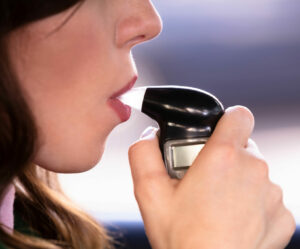
If you are stopped by a police officer and they suspect that you are driving under the influence of alcohol or drugs, the officer will likely ask you to submit to some field sobriety test. Are you within your rights to say no to these tests, or do you have to submit? We take a closer look at your legal options when it comes to participating in field sobriety tests, and the fallout from your decision in today’s blog.
Can I Refuse Field Sobriety Tests?
Studies have shown that roadside behavioral tests are not an accurate gauge a person’s impairment, but police still rely on them all the time to try and collect evidence that a person is above the legal driving limit. What’s more, even if you ace the test or you stumble during the walk and turn, odds are you’re going to be asked to blow into a portable breathalyzer. So can you just refuse to do the tests altogether?
You are within your right to refuse to participate in roadside tests and a portable breath test while you’re along the side of the road. You will not face any additional crimes for refusing these tests, but that doesn’t mean that police will just let you go. If you refuse to submit, more than likely the police officer will use the totality of your interaction to place you under arrest for suspicion of driving under the influence.
Things change a little bit once you’ve been arrested. After you’ve been placed under arrest and taken to the police station, you are under a little more legal pressure to submit to a test. Under Minnesota law, after you’ve been placed under arrest for suspicion of DWI you are legally required to submit to chemical testing, either in the form of blood, breath or a urine test. It’s worth noting that you can still refuse to submit at this junction, but now, refusal is a crime in and of itself. You will be committing an implied consent violation, which can upgrade your DWI charge and result in the revocation of your driver’s license for an extended period. You do still have a choice, and depending on advice you receive from legal counsel, refusing may actually be your best option, but know that it will come with a price.
Remember that you have the legal right to speak with an attorney within a reasonable time period before deciding whether to make this decision, so assert this right. We can advise you so that you make the best decision for your case. If these tests show that you are over the legal limit, you’ll face formal charges for your actions. If it comes back under the legal limit, you may be released. Either way, it’s in your best interest to speak with a lawyer before moving forward.
If you need help with any aspect of your DWI case or whether or not you should submit to testing, call Avery and the team at Appelman Law Firm today at (952) 224-2277.





